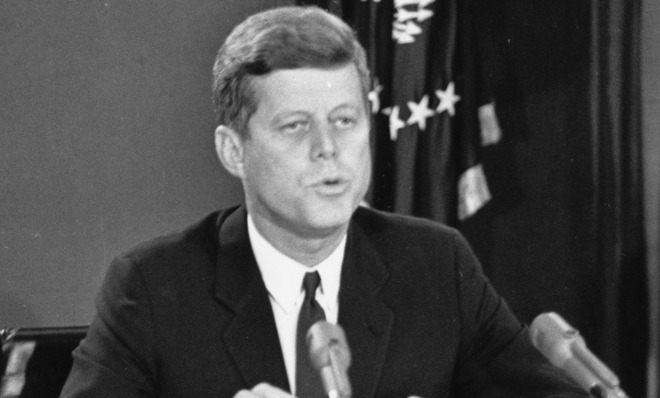Today in history: October 16
President Kennedy was informed that the Soviet Union had placed nuclear missiles in Cuba. It was the beginning of the Cuban Missile Crisis that nearly led to nuclear war between the U.S. and the Soviet Union

A free daily email with the biggest news stories of the day – and the best features from TheWeek.com
You are now subscribed
Your newsletter sign-up was successful

Oct. 16, 1962: President Kennedy was informed that the Soviet Union had placed nuclear missiles in Cuba — able to hit most of the U.S. It was the beginning of the Cuban Missile Crisis — a tense 13-day standoff — that nearly led to nuclear war between the United States and the Soviet Union. Historians estimate that had the Cuban Missile Crisis escalated into nuclear war, 100 million Americans and 100 millions Russians would have died. The standoff gave birth to the term Mutual Assured Destruction (MAD) — in which both sides understood that they would each be destroyed in a nuclear conflict.
Kennedy demanded that the Soviets remove the missile from Cuba, and ordered a naval blockade of the island. The president said that any Soviet missile launched from Cuba against any target in the Western hemisphere would be regarded as an attack on the United States, "requiring a full retaliatory response upon the Soviet Union."
The Soviets publicly rejected American demands, but secret talks were able to resolve the crisis, just hours before am American attack on Cuba was to begin. As part of the agreement, the U.S. agreed to later remove outdated Jupiter missiles from Turkey.
The Week
Escape your echo chamber. Get the facts behind the news, plus analysis from multiple perspectives.

Sign up for The Week's Free Newsletters
From our morning news briefing to a weekly Good News Newsletter, get the best of The Week delivered directly to your inbox.
From our morning news briefing to a weekly Good News Newsletter, get the best of The Week delivered directly to your inbox.
Quote of the Day
"In the long history of the world, only a few generations have been granted the role of defending freedom in its hour of maximum danger. I do not shrink from this responsibility — I welcome it." — John F. Kennedy
More from West Wing Reports...
A free daily email with the biggest news stories of the day – and the best features from TheWeek.com